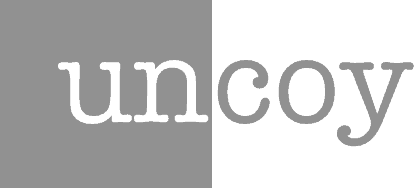
Tax Evasion solicitation
from Daniel J. Mitchell
and the Cato Institute
Sometimes one opens up a mainstream magazine or newspaper and one is just astonished at what is considered acceptable thought.
A principal example of just how decadent contemporary American business culture has become is the Wall Street Journal. I’ve never had the chance to read the Wall Street Journal much as I’ve mainly lived in foreign lands where it was either a hassle or very expensive to get copies of the WSJ. One of my site promotion team at Foliovision is a business school student. At his school they get copies of the WSJ for free.
Indoctrination for young minds. Anyway my employee is kind enough to bring the leftover old copies to Foliovision where some of the other site promotion team members take the odd copy. But frankly the keenest reader is myself – I have acquired a morbid fascination with the entitlement and backpatting editorial of this ragged daily apologia for the excesses of capitalism.
When I used to write for The Economist, we at least had to show a pretence of solid economic argument and a sense of noblesse oblige. While we were definitely on the side of the monied lords, we were working for a better world. When we procribed hard remedies, it was that we thought they would do good in the developing lands. When we naysayed environmental concerns, it was because the science looked doubtful.
In more recent years, The Economist itself has become less intellectually rigorous and has often flirted with being a simple cheerleader for the carpet baggers of globalisation. One could call it economic rape and pillage – spoiling of water and soil for centuries in pursuit of ten years of financial growth for the privileged classes.
But I digress – nothing prepared me for headlines like this one from the WSJ: Heavenly Tax Havens.
A certain Daniel J. Mitchell of the Cato Institute has been given space to tell us that while “wealthy tax evaders may not be sympathetic figures, especially with those of us who meekly comply with the law…low-tax jurisdictions serve a valuable role in the world economy.”
So those who don’t pay their taxes but enjoy the benefits of “high tax” host nations are bold heroes while the rest of us are meek and stupid sheep!
I’d like to transport Daniel S. Mitchell back to the Dark Ages where he belongs. In that era, local fiefdoms and duchies were set up by bold murderers who paid no taxes and took what they wanted. There was no running water (after the fall of the Roman Empire) and life was brutal, nasty and short. General misery is the inevitable result of low tax and low infrastructure regimes.
Daniel S. Mitchell has the gall to point out the “big benefits” of low tax/flat tax regimes for host countries, like Ireland, Estonia and Slovakia.
I happen to live in one of these flat tax havens. While the economy is booming, it doesn’t help the country much as there is little tax revenue from the business boom. So hospitals fall apart, pensions are small, unemployment insurance is almost non-existent, the streets are filled with potholes, many Slovak police are corrupt and/or lazy. The education system is falling apart as well.
In Bratislava, civic planning is atrocious. At the turn of the century Pressburg/Pozony (the original name in German and Hungarian) was one of the Danube’s prettiest towns with manors lining the hills and a beautiful old town and riverfront. Now Bratislava is on its way to becoming one of the Danube’s ugliest towns with highways and cheap skyscrapers blocking all access to the river.
Last time I checked – the high tax regime of Austria, the healthcare services are excellent, the water is the best in the world, nature is extensively protected and Vienna is one of the most attractive and carefully developed cities in the world. The education system is one of the best in the world.
Tax havens are a race to the bottom, with a huge price in terms of infrastructure, health and education. If you are one of the very wealthy, perhaps the money looks better in your personal bank account. The problem is not just your quality of life but the quality of life of all of your compatriots is the cost of these low taxes. You have to drink the water, breathe the air, drive the roads and visit the hospitals.
If you are wealthy enough you can go to entirely separate hospitals and congratulate yourself that you are not in an endless emergency room line: last time my girlfriend got sick in Bratislava she called the emergency room and learned there would be a seven hour wait. Well, it solved the issues of medical shortage: she left her injuries untreated until Monday when she could visit her regular doctor.
In any case, I am still shaking my head that the WSJ is advocating tax fraud to its readers: “How the Liechtensteins save the world economy.”
Rather curious that the WSJ would publish an article encouraging tax evasion, as criminal solicitation is a crime in the United States: “The penalty for criminal solicitation is the same as that authorized for the crime that was solicited”.
According to the IRS, the penalty for attempt to evade or defeat taxes is 5 years imprisonment, fines of up to $250,000 or both.
If any of the students enjoying free copies of the WSJ is caught out stashing their money in tax havens in the next five years, I would suggest they make a plea bargain. In exchange for a suspended sentence, cite Daniel J. Mitchell’s criminal solicitation. Let the WSJ or Mitchell pay the immediate fines for tax fraud.


I actually had a problem with my taxes last year. I was hurt and was put on FMLA. After being on that for 2 months I guess I didn’t have my taxes taken out of my weekly checks. So I guess I owe money now…right? Is what I did consider tax fraud?
You are liable for six or seven years of taxes retroactively.
In Richard Branson’s autobiography Losing my Viriginity, he says he will never break the law after getting caught moving records out of England to France and back to avoid paying VAT. “Never worth the stress,” says Branson.
Something else to consider is that if the sum is small enough few bureaucrats want to take the time to investigate it in the first place. Bigger fish to fry. But you leave yourself open to extortion – they just have to decide when to apply the pincers.
In your place, I’d pay the right taxes, but making sure that I didn’t miss any eligible deductions.
Health care in Austria is not provided by the State across the boad. EVERYONE MUST PAY accept the poor, who receive it for free. It is time that this meme be put to bed once and for all. These services are NOT free.
Horse pucky Thomas. Could you please share with us how much you pay for your doctor’s visits in Austria.
I’d also be charmed if you could include your annual insurance costs (which we pay in Canada and Slovakia). The only difference is that medical costs to the state here are five to ten times smaller than what the hospitals and doctors in the US charge to insurance companies and to individuals who aren’t insured.